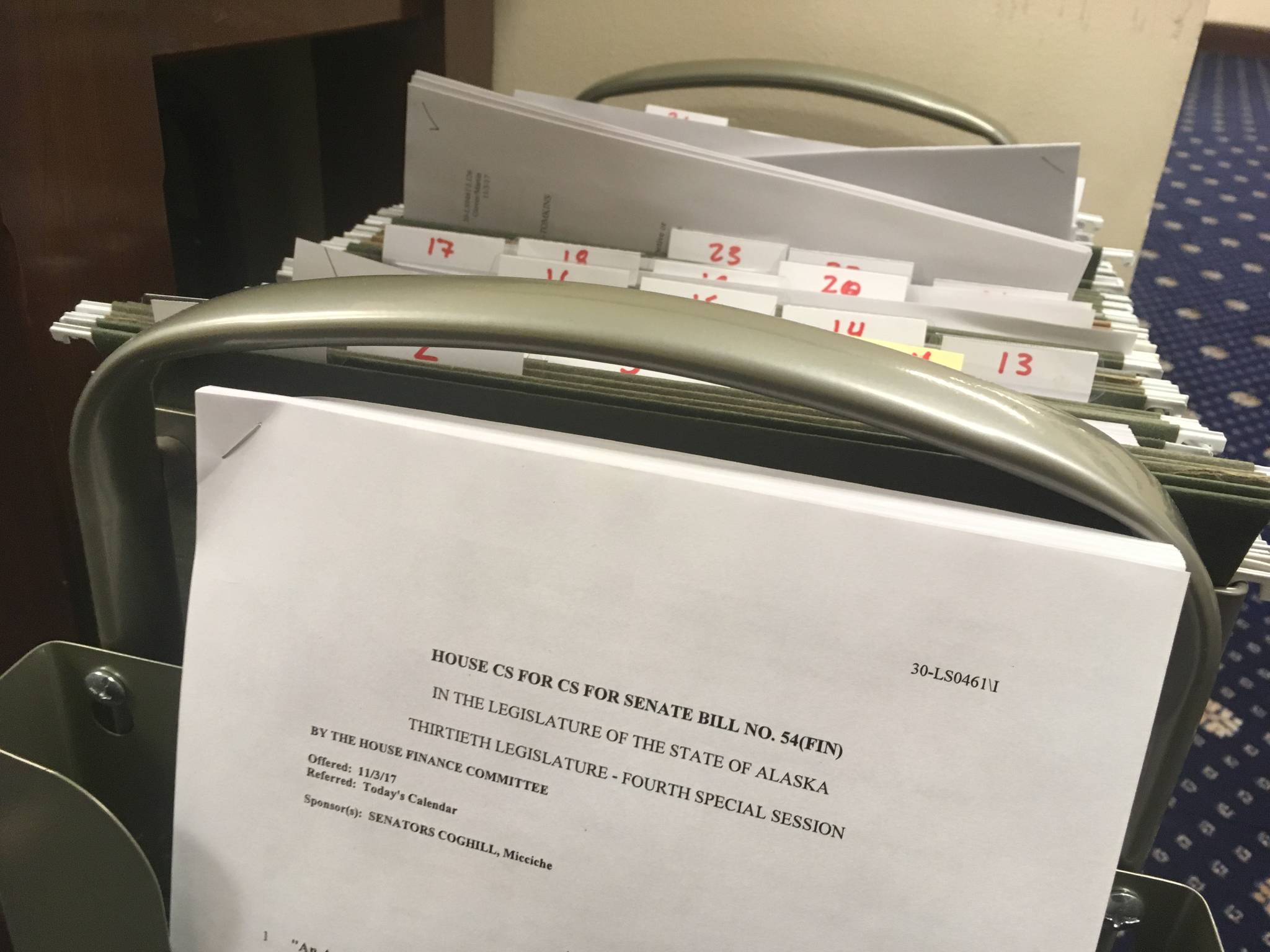After a weeklong whirlwind of amendments, Senate Bill 54 is in the hands of the lawyers — and some of them aren’t happy.
A late change by House lawmakers may have introduced a constitutional conflict, endangering a portion of the bill that rolls back last year’s SB 91.
“The Department of Law has brought it to our attention that bringing B and C (felony) consequences to the same level is a potential constitutional issue,” Senate Majority Leader Peter Micciche, R-Soldotna, said Wednesday. “We’ll have to talk about how that’s adjusted.”
Cori Mills, a spokeswoman for the Alaska Department of Law, confirmed by email that state lawyers identified the concern.
A legal memo from Doug Gardner, the Legislature’s lead attorney, states: “The issue raises a substantive due process concern.”
SB 54 was intended to modify and partially roll back the criminal justice reforms instituted under SB 91. Many Alaskans testified in town hall meetings that they felt SB 91 insufficiently punished criminals.
The Legislature listened to those complaints, and an amendment from Rep. Lora Reinbold, R-Eagle River, was approved in a 26-13 vote by the House last weekend. The amendment (which was modified by Rep. Jennifer Johnston, R-Anchorage, not Rep. Lance Pruitt, R-Anchorage, as previously reported by the Empire), allows judges to sentence people to longer prison terms for a class C felony.
Class C felonies are the lightest level of felony, and according to figures from the Alaska Department of Corrections, C-felony offenders account for 40 percent of the people in Alaska prisons.
With the amendment accepted, SB 54 now allows judges to sentence criminals to 0-2 years in prison for a first C felony.
The problem: The sentence of 0-2 years for a first C felony is the same possible penalty as someone sentenced to a first B felony, supposedly a more serious crime.
Rep. Andy Josephson, D-Anchorage and an attorney, said a lawyer could argue in court that the C felony sentencing range no longer makes sense.
“Having a C be equal to a B could be irrational,” he said, thus violating what the courts call “substantive due process.”
As Gardner wrote in his analysis, “Courts have interpreted due process to provide for sentencing that is proportional to the level of the crime. A person’s right to substantive due process is violated if the person is subject to ‘a legislative enactment (that) has no reasonable relationship to a legitimate governmental purpose.’”
With the House having passed a different version of SB 54 than the Senate, the issue is now in the hands of senators.
Some lawmakers had believed (or hoped) that the Senate might simply accept the changes made by the House.
The constitutional conflict makes that option unlikely. Instead, the Senate is likely to reject the House changes and set up a conference committee to resolve the differences between the two versions of the bill.
Sen. John Coghill, R-North Pole and author of SB 54, said Wednesday that while legislative staff are also analyzing the other changes made by the House, the constitutional issue “is a big chunk” of the reason why the Senate has not already voted on the House’s version of SB 54.
Some lawmakers have expressed the hope that SB 54 might be passed out of the Legislature and to Gov. Bill Walker by the weekend. Because lawmakers have expressed little interest in considering the other item on the agenda of this special session (a payroll tax), legislators are expected to adjourn the special session once SB 54 passes to the governor.
The need to fix the constitutional conflict makes the possibility of a quick resolution less likely, though one Senate Majority member told the Empire that the issue might be fixed in a “30-second” conference committee meeting that lowers the maximum C felony punishment by 10 days.
• Contact reporter James Brooks at james.k.brooks@juneauempire.com or call 523-2258.

